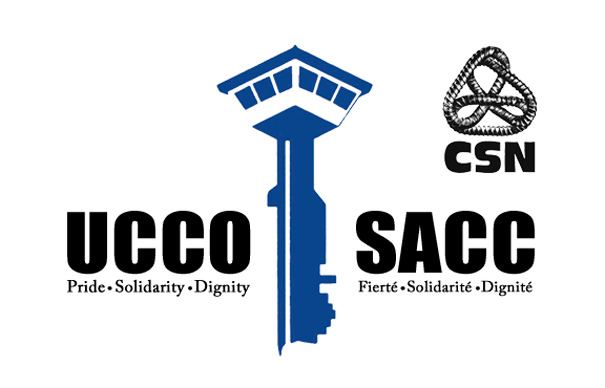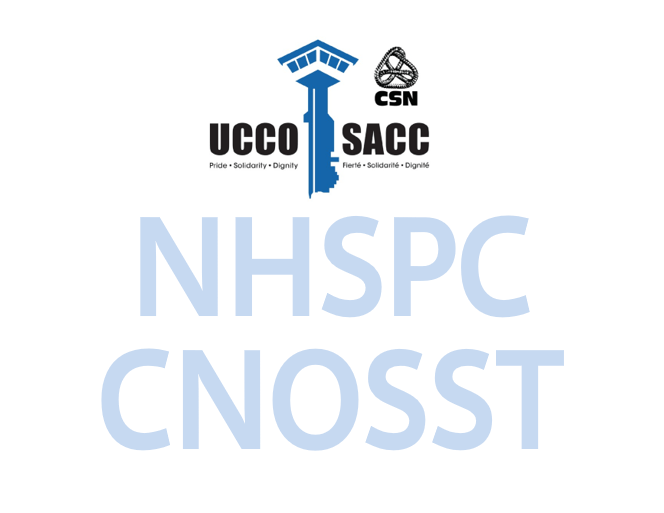On Monday June 20, 2022, a National Health and Safety Policy Committee was held in hybrid format. Our representatives Frédérick Lebeau, National Vice-President, James Bloomfield, President of the Prairie Region, and Charlie Arsenault-Jacques, CSN Union Advisor, attended the meeting. Ucco-Sacc-Csn had two items on the agenda.
During the NHPSC meetings, the employer provides us with several reports such as significant employee exposure to blood and/or body fluids, assurance of voluntary compliance and direction reports under Part II of the Canada Labour Code, update on N-95 mask fit testing, harassment and violence in the workplace statistics and follow-up on threats against personnel. If you have any questions on these specific topics, we invite you to contact your local health and safety representative.
Prison Needle Exchange Program
The NHSPC will be advising the Commissioner that we need more information before CSC implements the program in other institutions. UCCO-SACC-CSN pointed out that the roll-out of the PNEP is a political choice rather than a rational one. Overdose Prevention Sites are much more effective to protect everyone’s health and safety. The Union repeated its position that OPS are the way to go in the future.
Further discussions will be held in September regarding CSC’s intent to impose the PNEP in more institutions.
Vehicle Maintenance
The Union raised the issue of the state of the fleet across the country. In some institutions, our escort and patrol vehicles are in general disrepair. How many times we see vehicles in poor condition with tie wraps, and duct tape, not to mention the interior of these vehicles which are often dirty and very poorly maintained! We discussed this with the committee and the General Manager of Technical Services and Facilities agreed with our concerns. He will be issuing a reminder to the facilities and the regions to bring the fleet guidelines to the forefront. In the interim, if you find that one of your vehicles is in poor condition, contact one of your OHS representatives to take pictures and bring the issue to the local OHS meeting. If changes are not made quickly or discussion stalls locally, the regional OHS representatives will intervene at the regional level. We will be monitoring the situation closely. CSC’s fleet runs almost 24/7, so we all need to do our part to keep these vehicles clean and functional.
OHS Training for Managers
Recently, we have witnessed staggering aberrations by some managers during work refusals at Edmonton Institution and the Regional Reception Center. The Canada Labour Code and our Global Agreement are clear on this point. Health and safety issues should be approached by all parties to find solutions and not be confrontational. Local management must lead by example. We raised situations in which management representatives were quickly falling into adversity and refusing to cooperate with the investigation. UCCO-SACC-CSN highlighted the importance of high-quality training for managers. The employer and the Union are forming a working group to look at joint training delivered both by the employer and the Union, like we had in the past. We will discuss more in September’s meeting on the process and feasibility. Ultimately, the employer must work in collaboration with our OHS representatives rather than engaging in a constant battle.

